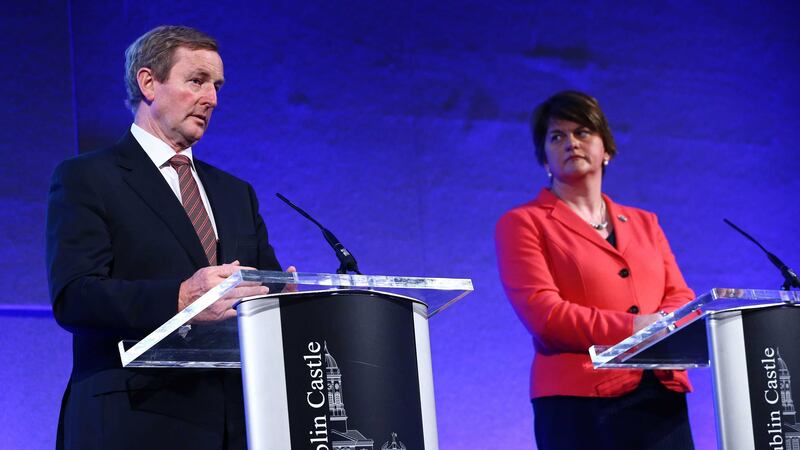THE contentious vote to leave the EU, largely carried by the electorate in England and Wales, has triggered a major political crisis in Britain, with the possibility that pro-EU Scotland might rerun the independence referendum and has raised here the possibility of a border poll in the north.
For the people of Ireland north and south there are huge serious political and economic implications, in terms of loss of EU funding, increased Tory austerity, tariffs on trade between the southern state and Britain, restrictions on freedom of movement in our own country and the loss of European scrutiny of Britain and British accountability for its breaches of human rights in Ireland.
Taoiseach Enda Kenny’s decision to consider the establishment of a national forum to discuss the political and economic crisis was first mooted by Sinn Féin and the SDLP and is to be welcomed.
The Taoiseach must not allow anyone, including the north’s first minister Arlene Foster, to block his forum suggestion, as she appeared to at Monday's all-Ireland ministerial council.
Vetoes – including the biggest veto of all, the partition of Ireland, have no place in today’s Ireland.
If the DUP do not wish to attend a forum meeting that is their prerogative. There are unionists who will.
Enda Kenny should proceed as planned with the forum and if the DUP wish the British government to represent the ‘leave’ vote they should be invited to the forum with those who voted to remain in the EU.
In my view the forum should rotate its meetings between Dublin and Belfast to ensure its focus is truly national and regional: nationally dealing with the consequences of partition and regionally to respond to the vote of the people of the north to remain in the EU.
It should have a remit to examine ways that the north could remain within the EU; and ways to oppose any British attempts to impose a ‘hard’ tariff border on this island. It should also bring forward practical proposals to address the benefits of harmonising the economies, north and south, with a view to Irish unity.
The Good Friday Agreement (GFA) has a provision in it for a border poll when the circumstances in the north have materially changed. And materially changed they certainly have with the vote here to stay in the EU while the people in England and Wales voted to leave.
First minister of Scotland Nicola Sturgeon’s response to the leave result was to call for a second independence referendum to protect the interests of the Scottish people. She was right to do so as was the deputy first minster Martin McGuinness’s call for a border poll in the north and for the north to remain inside the EU.
The decision by the people here to vote to remain in the EU is highly significant. It is the second time a substantial section of unionists joined with nationalists, in their economic interests and voted against the wishes of the DUP to leave the EU.
The last time this happened was in 1998 when unionists rejected the DUP’s advice to vote against the GFA.
The vote for the GFA was a positive and progressive response to those campaigning for it. Those unionists who voted for it were aware that from that point onwards the north’s political existence was contingent on it being part of the all-Ireland ministerial council as well as an Irish-British, east-west structure.
The vote in the north to remain in the EU is a positive and progressive vote to be part of a wider political union, which involves the rest of Ireland and the rest of the EU.
Ulster Unionist leader, Mike Nesbitt, and the leader of the Alliance Party, David Ford, have to be commended for their leadership in encouraging their supporters to vote to remain in the EU.
The British prime minister did not consult the people of the north before he took his foolhardy decision to hold a referendum.
Nor were they consulted or considered when he introduced cuts to the north’s public services including welfare.
The people of the north do not matter to the British government.
Their views, however, do matter and will be aired at the Irish government’s national forum and rightly so.







